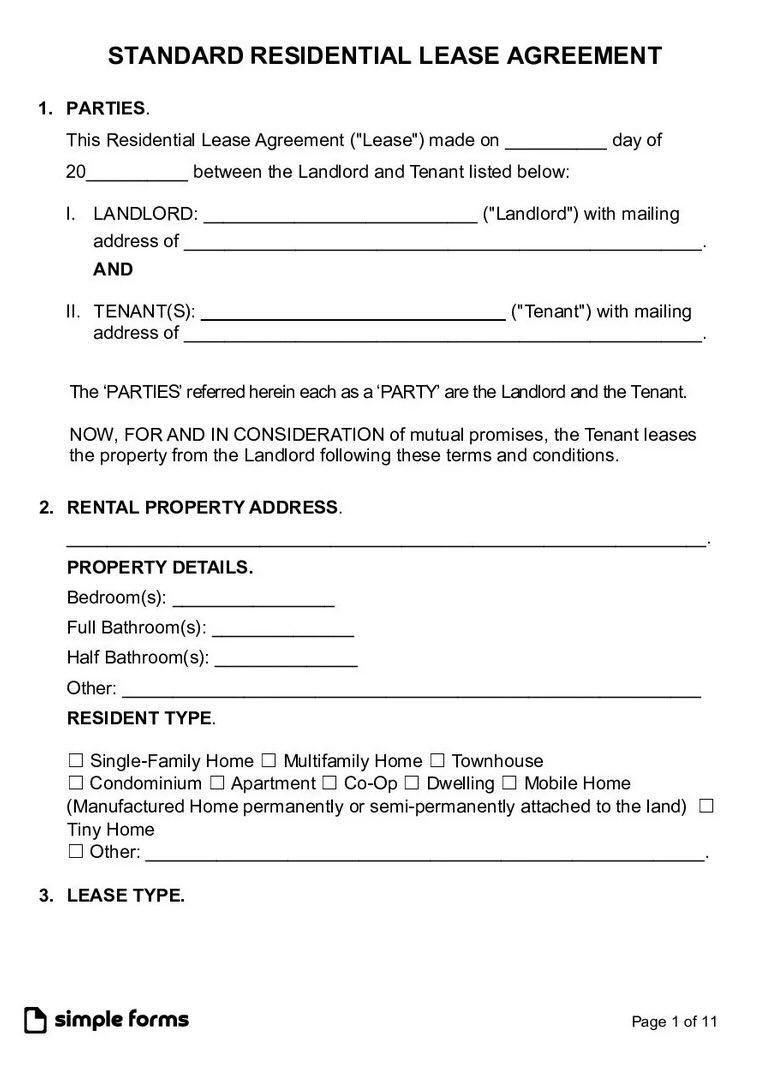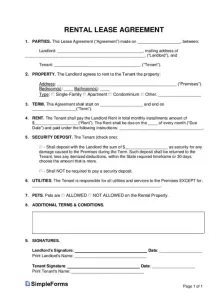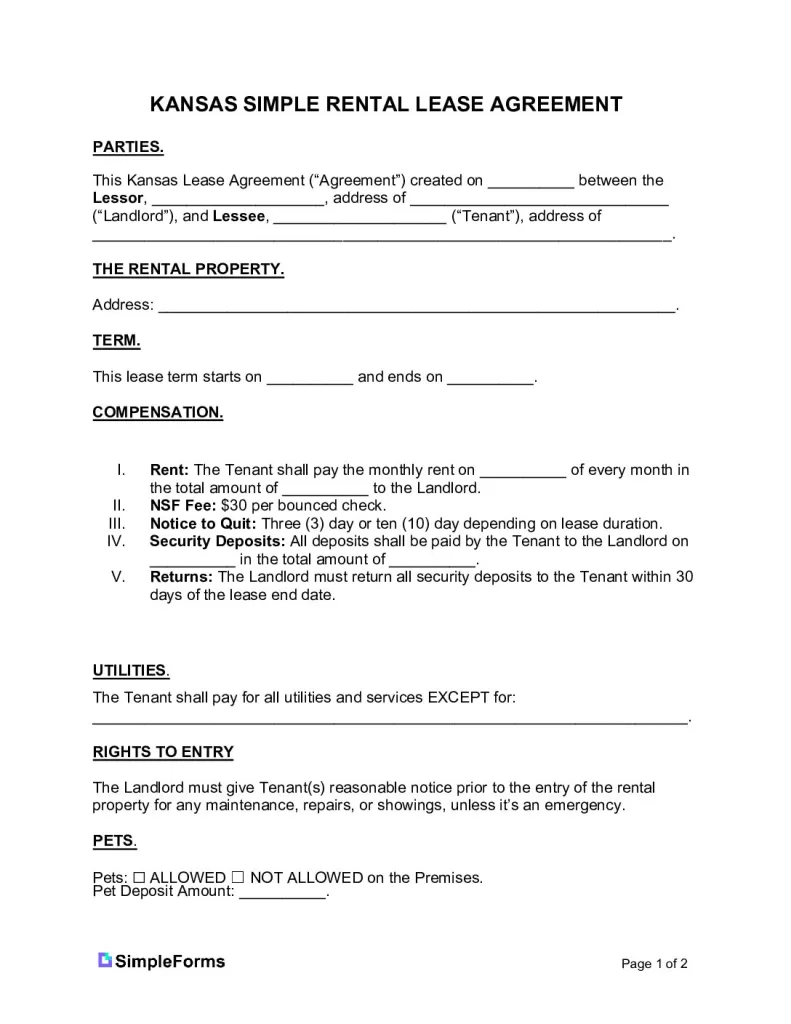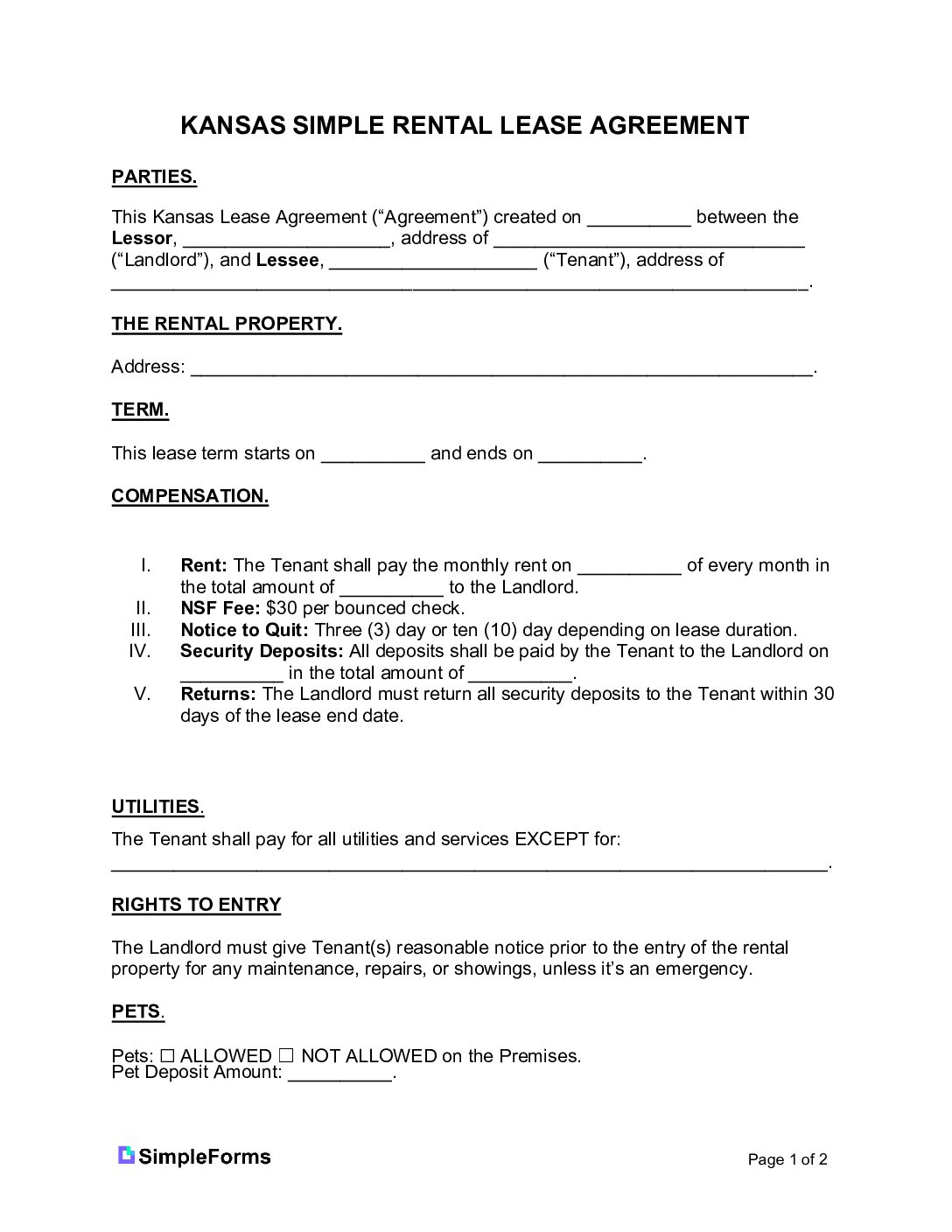A Kansas lease agreement is a legally binding document that establishes the terms of a rental arrangement between a landlord and tenant for residential or commercial use of a property. Typically, the agreement will specify a start and end date, along with the monthly rent payment amount owed by the tenant to the landlord.
Options By Type
 Standard Residential Lease Agreement Standard Residential Lease Agreement
Download: PDF |
 Simple (1-Page) Lease Agreement Simple (1-Page) Lease Agreement
Download: PDF |
Most Recent US Home Facts
- Population (2023): 334,914,895
- Median Households (2022): 125,736,353
- Median Household Income (2022): $75,149
- Owner-occupied Households (2022): 64.8%
Source: U.S. Census Bureau
This Agreement Form Must Include the Following
Required Disclosures (3)
- Authorized Persons
- Lead-Based Paint Disclosure Form
- Inventory and Condition of the Premises
Security Deposits
- Maximum – The maximum amount that can be charged as a security deposit for rental properties is one month’s rent for unfurnished properties and one and a half months’ rent for furnished properties.
- Pet Deposit – Landlords are allowed to request an additional one and a half months’ rent if the tenant has a pet. However, it is important to note that a pet deposit cannot be charged if the tenant has a pet in accordance with the Americans with Disabilities Act (ADA). You can view the specific requirements of the ADA to determine if the tenant qualifies for this exemption.
- Return – The landlord is required to return the security deposit to the tenant within thirty (30) days after the lease has ended. If the landlord has made any itemized deductions, they must be provided to the tenant within fourteen (14) days.
Paying Rent
- Grace Period – Payment of rent is required at the agreed time and location by both the tenant and landlord. It is imperative to note that there is no provision for extending the rent payment date or grace period for the tenant. Non-payment of rent on the due date may prompt the landlord to serve a notice to quit, which can either be a three-day or ten-day notice, depending on the tenancy’s duration.
- Maximum Late Fee – There are no statutory limits on the amount a landlord can charge for late fees when rent is overdue. Additionally, a bounced check may incur a maximum NSF fee of $30.
- NSF Fee – $30 per bounced check.
Source: § 16a-2-501(e)(iii)

